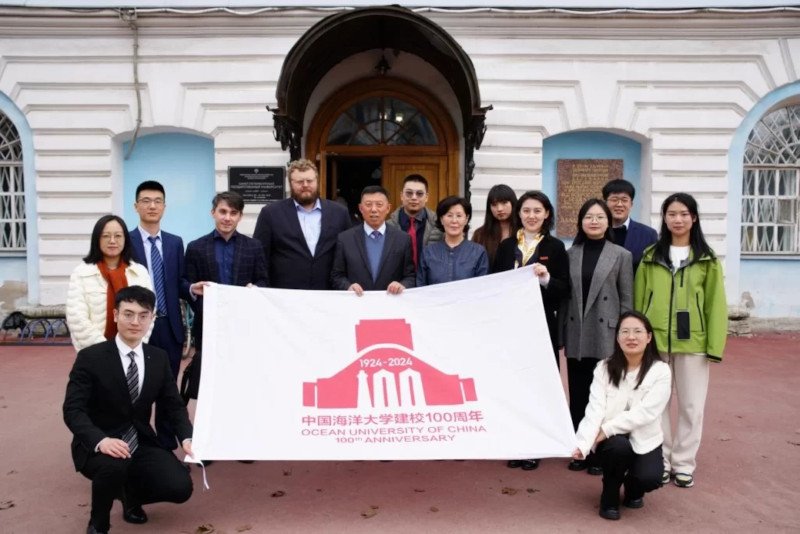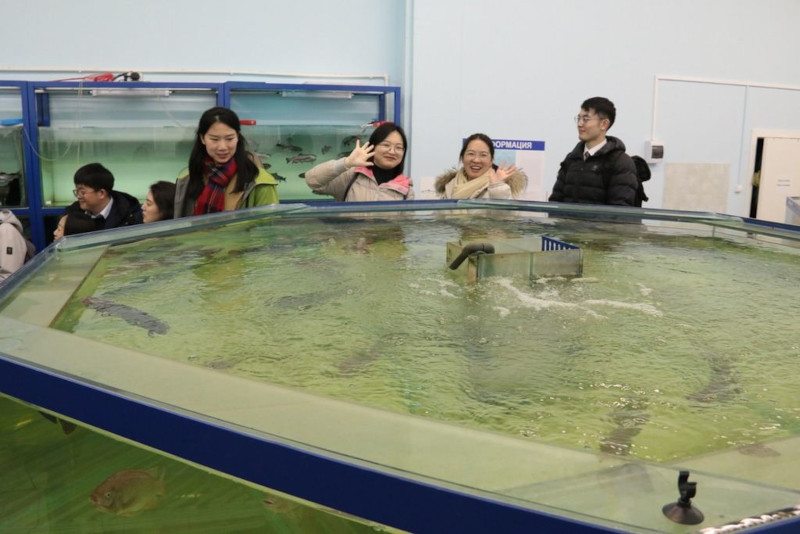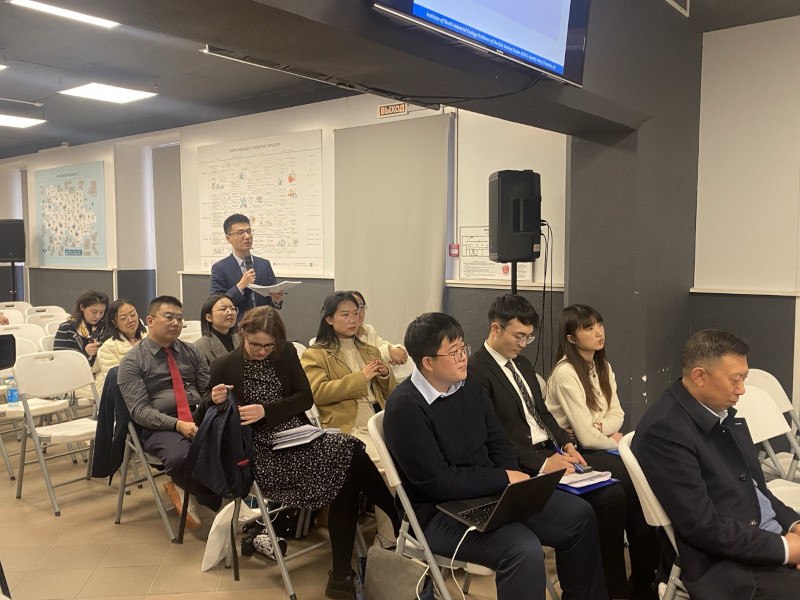The Third Russian-Chinese Arctic School “Anthropogenic impact on Arctic ecosystems: in search of new approaches to Arctic management” was held from April 1st to 6th in St. Petersburg and Petrozavodsk, Russia. This article was written by Ekaterina Serova and first published in the Acentury.
 The school has become a product of intense collaboration between St. Petersburg State University (SPbSU, St. Petersburg, Russia), Petrozavodsk State University (PetrSU, Petrozavodsk, Russia), and the Ocean University of China (OUC, Qingdao, China). The event showcased an exceptional pool of expert knowledge and research potential on wide range of Arctic-related issues.
The school has become a product of intense collaboration between St. Petersburg State University (SPbSU, St. Petersburg, Russia), Petrozavodsk State University (PetrSU, Petrozavodsk, Russia), and the Ocean University of China (OUC, Qingdao, China). The event showcased an exceptional pool of expert knowledge and research potential on wide range of Arctic-related issues.
More than 30 graduates, postgraduates, and young scholars were engaged in problem-oriented expert sessions, lecture classes and follow-up discussions during a week. The agenda included natural resource extraction policy and environmental technologies used for the recultivation of Arctic lands and water areas, renewable energy capacity to ensure economic development of northern territories, Arctic oil and gas deliveries and their impacts on the Arctic ecosystems, the potential of sustainable tourism for the economic and cultural development of the European sector of the Russian Arctic.
The participants weighed the pros and cons of potential transition to green Arctic transportation which involves low-carbon technologies, green energy supply systems adopted to extreme low temperatures. No less important merit was the elaboration of practical and constructive-technical solutions for the Arctic settlements, as well as proposals for further interaction of Russian and Chinese academia and businesses in this field.

 Importantly, the Chinese engineers are willing to co-develop alongside Russian counterparts renewable energy generating systems and related certification standards, nowadays Arctic exploitable wind power capacity is on the top of priorities. Despite harsh climate conditions and a lack of sunlight in the Russian Far North, the expert assessments show that cooperation in photovoltaic energy field is likely to satisfy energy needs of people in areas with sparse population and local small businesses in operation. Last but not least, the academia shares the unanimous opinion that the future of the power generation is hydrogen technologies.
Importantly, the Chinese engineers are willing to co-develop alongside Russian counterparts renewable energy generating systems and related certification standards, nowadays Arctic exploitable wind power capacity is on the top of priorities. Despite harsh climate conditions and a lack of sunlight in the Russian Far North, the expert assessments show that cooperation in photovoltaic energy field is likely to satisfy energy needs of people in areas with sparse population and local small businesses in operation. Last but not least, the academia shares the unanimous opinion that the future of the power generation is hydrogen technologies.
The situation with small hydropower stations seems more complicated. Some «experiments» in the Arctic territories show that these stations may operate in the wholesale market, meaning they can sell energy to the general grid or directly to retail consumers via contracts and agreements. The experts say that the investments in small hydropower are profitable, the question is only about the payback period. However, Russia has not yet managed to fully evaluate full capacities of small hydropower stations in the Arctic, they are simply idle, in comparison and even some contradiction with nuclear energy resources.
 Despite Chinese investors are relatively keen on green-energy projects in Russia, they are seeking a more favorable business environment and mechanisms to protect their investments, including the creation of a feed-in tariff system to encourage companies to invest in renewables.
Despite Chinese investors are relatively keen on green-energy projects in Russia, they are seeking a more favorable business environment and mechanisms to protect their investments, including the creation of a feed-in tariff system to encourage companies to invest in renewables.
Also, prospects for developing university-to-university cooperation are opening up, with an essential presence and involvement of entrepreneurs to develop breakthrough, well-thought, and effective solutions.
"Universities in Russia and China can jointly train talented specialists in the fields of science, technology, and engineering. Natural sciences and engineering are in demand among many Chinese students. In China, there are over 60 million engineers." Professor of the Ocean University of China Guo Peiqing
Source: Ekaterina Serova, Acentury.online ( https://acentury.online/articles/green-energy-transition-possible-some-arctic-expertise-observations/ ) and Acentury.ru
The tags below provide an opportunity to view previously posted related news within the selected category
